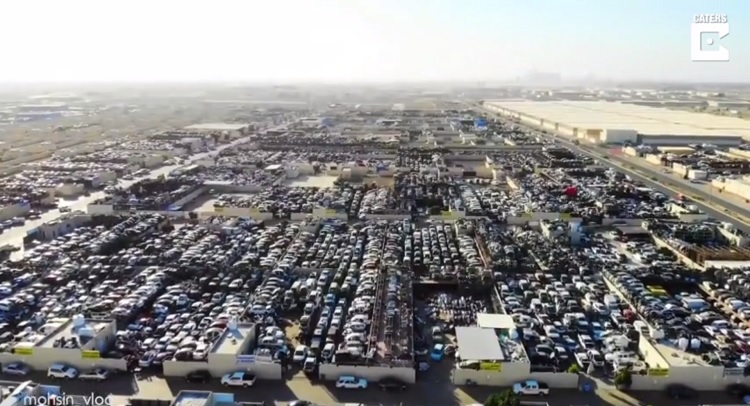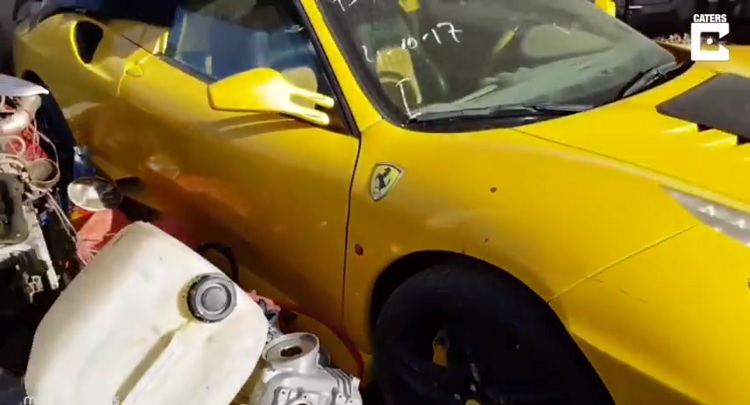Watch the video of the largest car graveyard.
[rumble video_id=v562vh domain_id=u7nb2]
Have you ever wondered what happens to those old, used up cars? At least, the ones that don’t end up in junkyards, museums, or collector’s garages? It turns out that there are special car graveyards that house these unwanted hunks of metal just collecting dust. Some get recycled to a certain extent but there are enough of them just sitting around that it boggles the mind.
One of the biggest car graveyards in the world is located in Sharjah in the United Arab Emirates where more than 24,000 vehicles are collected in one location under the hot desert sun. But it’s not the staggering number of vehicles that really sets this car graveyard apart. It’s the fact that some of the most expensive cars in the world call this graveyard their final resting place.
Sure, there are old cars here. But the video shows us clips of the latest Lamborghinis, Ferraris, BMWs and other luxury brands just rotting away. Classic cars from the 1960’s or 70’s are one thing but how can modern super-cars end up here? At the very least, it represents a colossal waste of money and technology.
The existence of such a situation reveals the dark underbelly of what it means to own a car in the United Arab Emirates.
Under sharia law, which the UAE practices, it’s a criminal offense to default on debt. Since the UAE doesn’t have any bankruptcy laws, there is no legal protection for those who fail to make car payments, default on their mortgage or fail to pay their credit card debt.
A lot of the luxury cars were owned by expats who were forced to abandon everything and flee with practically nothing but the clothes on their backs as they lost everything due to the financial crisis that has gripped the country over the past several years. No foreigner wants to spend time in a Middle East jail so it’s no wonder that expats just choose to flee the country.
One British expat who wished to remain anonymous told Business Insider: “It’s not just expats to blame for the irresponsible act of leaving expensive cars behind as they flee their debts, but many locals too. The aftermath of the global financial crisis affected people from all walks of life, not just foreign workers.
“Many took out big loans to finance flashy cars to keep up with their peers. But when things slowed down they have struggled to make repayments and have fallen into debt. Foreigners and locals have been caught out alike.”
It’s truly a sad situation, indeed. Even if some of these vehicles are auctioned off, the sheer number of them means that more than a few will just go to waste.




